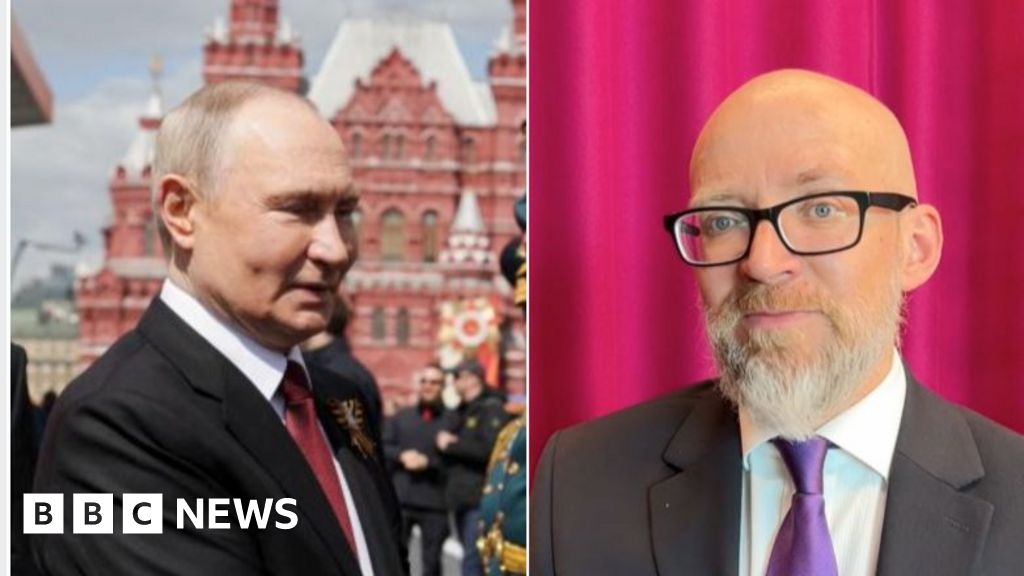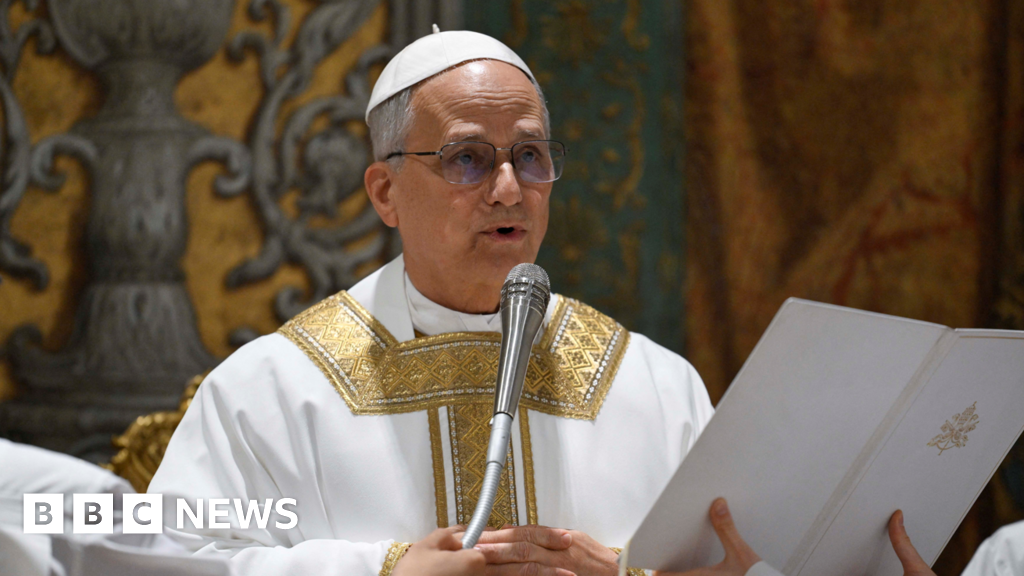ARTICLE AD BOX
By Sophie Williams and Olga Pona
BBC News, Lviv
Image source, Maxym Strelnik
Image caption,Many people in Izyum retreated to basements, to avoid bombardment and soldiers
"We thought those were our last minutes. It was extremely scary but we were lucky."
Elena is recalling the moment Russian troops started shelling, after she and a group of escapees passed through one of their checkpoints.
After two months living in the basement of a kindergarten in the Russian-occupied town of Izyum in Ukraine, Elena, spent two nerve-shredding days on the road to safety. She and her daughter were among 20 people in a convoy of vehicles heading away from Russian-controlled territory. They fled last Friday using a route organised by volunteers.
"All that time we were praying," said Elena, 52, recounting how they passed through numerous Russian checkpoints. When troops asked them where they were going, the group convinced the soldiers they were headed for Russia. At one checkpoint, Elena said, Russians looked through her daughter's phone, and became angry when they saw messages to her friends about the situation in Izyum.
Finally the pair reached safety in Poltava, a city in central Ukraine. But she said she felt as though she'd lost everything and couldn't forget the horror of what she went through in her home city after the start of the war.
Hiding from soldiers
"Bodies were laying for weeks in the streets. We tried not to watch them in order to save our minds. We couldn't bury dead people because it equalled being killed as well. The shelling was non-stop," she said.
Elena and others in the basement had cooked food on a fire and lived off vegetables collected from their gardens.
"Everyone brought everything they had. We all shared food," she said. "It helped us not to lose hope."
She adds that Russian troops were looting everything, including people's underwear. Soldiers drove around the city in stolen cars with "Z" signs painted on them, she recalled. "They were armed and often very drunk. It was very scary when an armoured personnel carrier was driving on your street and soldiers with machine guns were sitting in it. We tried to hide."
Situated south-east of Kharkiv, the city of Izyum is known as the gateway to the Donbas - Ukraine's old coal and steel-producing region, more than a third of which was seized by Moscow-backed separatists in 2014. It is surrounded by forests and rivers, which make it a natural fortress. And within the city boundaries is the Kremenets mountain, which is 218m (715ft) above sea level.
"Whoever has control of this mountain has a significant military advantage," said Maxym Strelnik, an official of Izyum city council.
All this made the city an important prize and soon after the Kremlin's invasion, it came under heavy bombardment. On 1 April, Russia seized control and has occupied the city since.
Now, Mr Strelnik, who was told by the Ukrainian military to leave the area, estimates that 80% of the city has been destroyed. Between 10,000 and 15,000 civilians remain in Izyum, he believes.
"There is no water, electricity, gas, heating and the sewage system doesn't work," he said.
In March, during the initial stages of the invasion, people were forced to stay in their freezing basements without heating. Those who fell ill were unable to get medical treatment. "We cannot even estimate how many victims there are in the city. There are no medical facilities or funeral services. The dead are buried near houses and in the city parks. It's a horrible reality," he said.
Among those still trapped in Izyum is the mother of Katerina, who escaped with her husband and two children at the beginning of March.
Ceiling fell in
"She calls me from time to time - sometimes once a week," Katerina said. "Even now when I'm safe, I can't feel 100% fine because my mum is left in a town that doesn't exist."
By the time Katerina got out, it was too late for her mother, who lived in a part of Izyum then already occupied by the Russians. She was forbidden to leave her house by soldiers.
Katerina's own escape was a harrowing experience. The family had been sheltering together in their basement for seven days when a Russian bomb fell just 500 metres from their house. "The ground started to fall from the ceiling," she told the BBC. "I started to understand then that our basement would not withstand the bombs."
She and her family had just 15 minutes to prepare to leave. They took very little - only children's clothes. Even the family pets had to be left behind.
As they left, she said, she could hear shells above her head. "The feeling of hearing them will be impossible to get rid of."
Image source, Maxym Strelnik
Image caption,Up to 80% of the city has been destroyed, says one official
Mr Strelnik has stayed close to Izyum, albeit in a zone still under Ukrainian control, to ensure he can try to help the people still inside. But communication with them is incredibly hard.
For the past seven days, there has been no mobile phone connection between the town and the outside world. The families of those still inside are desperate to hear from them, he says.
The lack of mobile coverage has also made life difficult for Volodymyr Zelenskyy - not Ukraine's president, but an ordinary citizen of the same name who has been volunteering to help those inside the city get out. During brief spells when a signal was available, relatives informed those still inside about evacuation buses which collected residents from small villages on the outskirts of the city.
"We evacuated about 200 people," said Mr Zelenskyy. "People were very emotional when they got to the evacuation points. They didn't have a hope for weeks and finally when they saw us, they thought that we were their saviours."
But he said the rescue effort was dangerous work.
"The last time our volunteers extracted people from [the nearby village of] Spyvakiva, they were shot by Russian snipers. Three people were killed and three people were wounded," he said. The BBC has been unable to independently verify this claim.
Both Katerina and Elena count themselves lucky there were able to escape Izyum when they did. But their memories of home in peacetime are haunting.
Katerina remembers the place which she says had everything she needed, including parks for children. "It was so cute, so cosy, like a small fluffy pillow, that feels like your mother hugging you," she said.
Elena misses the days when she would plant flowers in the garden with her granddaughter.
"We did not realise how lucky we were," she said. "Now I realise I was living in a paradise."

 3 years ago
93
3 years ago
93








 English (US) ·
English (US) ·